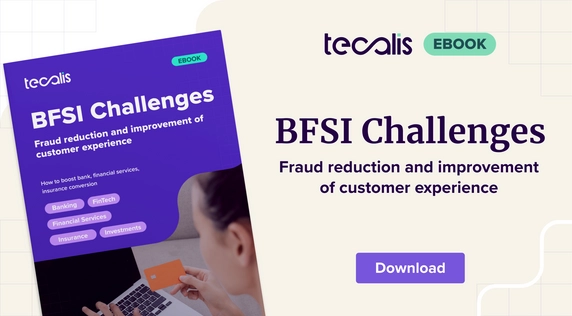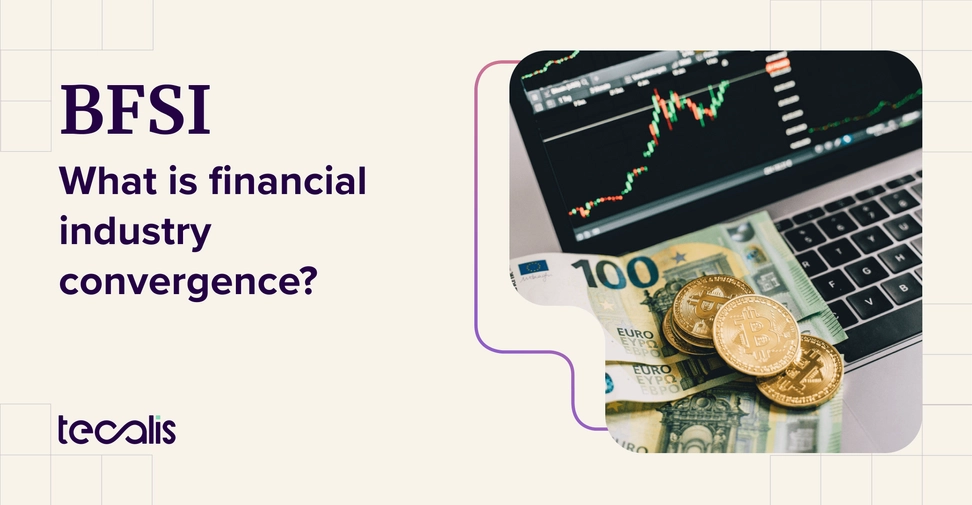Index
Get the latest news right in your inbox
The BFSI industry is already a reality: a unique ecosystem with a differential proposal that brings together the best practices of each of the areas of finance to create disruptive business models. The evolution of FinTech and InsurTech has led to the emergence of new players with a completely different approach, updating traditional companies and generating new opportunities for both customers and companies.
It is no longer just that we are starting to use new terms to refer to an area we already knew, but that the transformation of banking, insurance or financial services companies has triggered the use of a concept that is here to stay.
What is BFSI?

BFSI is the acronym used to unify three industries that share an offer of products and services of banking, financial and insurance origin. Thus, the first definition of BFSI is a quick way to refer to companies, businesses, customers and suppliers around the following areas:
- Universal banking.
- Insurance offer.
- Non-bank financial companies.
- Small volume financial institutions.
- B2B Banking.
- Investment and pension funds, as well as mutual or cooperative societies.
- The total FinTech offer: neobanks, wallet cards, online banking, TTPs, intermediaries, payment gateways...
- Wealthtech service companies: trading and cryptocurrency platforms, exchanges, P2P proposals, lending, crowdfunding...
The meaning of BFSI, however, goes beyond this conjugation of different actors offering services and products of the same range, origin and complementary. It is also, and more recently, used to refer to technology-based companies engaged in finance.
Sometimes it can also include PropTechs that base their core business on real estate capital investment, with a more financial focus and less on housing services.
As a summary, we can say then that it is a term used to summarize a set and not have to go explaining part by part. Even so, as we have been saying, it is increasingly used to refer to those companies with a more innovative value proposition, to the traditional ones that have diversified and expanded their markets or to the set of technology providers that provide software that makes possible the online offer of financial products and services.
Convergence of BFSI areas
Finance companies that offer insurance and insurance companies that offer financing. Yes, the diversification of the different areas of BFSI within a single player is becoming more and more common. Whether through strategic alliances or partnerships, many businesses can now offer their clients complementary products based on their interests and profile. Also, thanks to new models, they are daring to do it on their own without partners.
Central banks, retailers and the private and corporate sector are also starting to open their own insurance divisions. This is not something new, as banking has been doing it for decades, however, as far as financial services companies are concerned, we have seen how now thanks to technology and scalable business operating models, they can reach new markets with a simple transformation of certain very specific and simple processes.
The term BFSI is widely used in the Business Process Outsourcing (BPO) sector, where consulting firms or other external contractors develop teams that diversify the market position of these companies. The same applies to the development of software and digital onboarding tools for the acquisition of new customers under KYC (Know Your Customer) and AML (Anti-Money Laundering) standards, whose technology, slightly modified, applies equally to use cases in these three areas: insurance, finance and banking.
Banking
The IT and information services, data and operations (processes) departments in the financial sector have done a good job of being an industry pioneer in terms of digital penetration. However, some of the methods of acquiring customers in online banking are expensive and require extensive technological developments. Now, thanks to SaaS models, banking has been able to transform in days and is able to deploy FinTech divisions in a really agile way.
Within the BFSI, open banking stands out. This applies not only to the most innovative models but also to traditional banking.
Insurance
The electronic signature is one of the most crucial technologies for BFSIs, especially for insurance services. No longer only for the contracting of financial and risk products, the digital signature makes it possible to send certified communications for use cases such as pre-notification of debts, renewals or maturity in an automated way.
Thus, banks have opted to dedicate teams to offering insurance with much greater agility than in the past. On the other hand, the interconnection of systems between banking and insurance players has led to cross-selling and partnerships between FinTechs and InsurTechs.
Financial Services

BFSI's "FS" is one of the fastest growing in recent years. Its proposal has been characterized by transversality, reaching everywhere and not only in B2B but also to the small investor.
We are no longer talking about the democratized trading platforms and digital brokers, but about an industry that has crept into the financial sector through neobanks, on/off products, micro-investments or rental agreements with the option to buy (financed reform included with the management of the decorator made by the financier).
Other industries
Whenever we talk about capital and money we talk about BFSI. As we have already mentioned, planners, builders and real estate companies have entered the more financial investment sector. Now, we can find investment businesses based on construction: a developer buys a plot of land and builds with the money of hundreds or thousands of individual investors, who will receive a profit margin based on the sales of, for example, a macro office complex. Goodbye to boring fixed-term deposits.
The future of FinTech, the financial sector and InsurTech
Today, companies and businesses belonging to the BFSI have proven to be able to overcome the uncertainty and volatility of the markets they operate in recent years. This is due to a willingness to be resilient through rapid change and anticipation based on data studies.
This ability to react with tight time-to-market comes thanks to SaaS technologies that are implemented in days. At Tecalis we have analyzed the practices of the main players in the BFSI sector discovering very recent trends such as aggressive incentive campaigns to open bank accounts or credit and debit cards (digital wallets). Many are wondering if this is correct and if these large investments in advertising and attractive claims are having a real impact on growth and, especially, on the business opportunities offered by the operations performed after user onboarding and account activation.
In 2022 and 2023, the profile of BFSIs is very different from what we have seen just a few years ago and certain trends are emerging that will mark the future of an area that brings value and wealth to the economy. You can download this full report that includes data, trends and proven practices of those that are profitable and growing in our Knowledge Center.
What to expect from regulators
One of the aspects that makes it possible to talk about BFSI as a unified whole is the regulation that affects each of the three areas involved. Both must comply with the same regulatory standards in most markets. Standards such as eIDAS (electronic IDentification, Authentication and trust Services), AML6 (Sixth Anti-Money Laundering Directive) or PSD2 (Payment Services Directive 2) define how operations in these industries should take place.
As mentioned above, as a general rule, the laws to which BFSI processes and operations must conform are the same. As a result, risk management and compliance strategies are established holistically. Thanks to RegTech, operating in any country and complying with your obligations is simple thanks to the integration of automation tools that include the necessary controls, giving the business the information it needs and satisfying the regulators.
In the future we will see further technological and regulatory convergence between the three areas and the lines between, for example, trading platforms, insurers or banks will begin to blur.

























